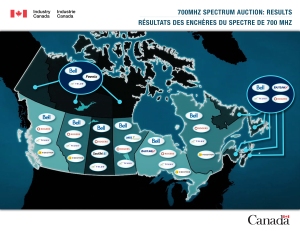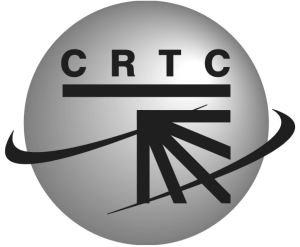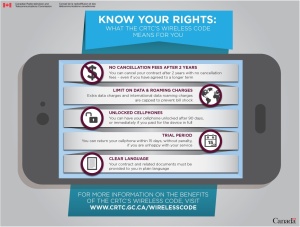
The CRTC wants to talk about sustainable competition in the wholesale wireless telecommunication services industry
Would Canadians benefit and is competition in the wholesale wireless mobile services industry sustainable in the market place?
Gatineau, Quebec (Monday, Sept. 29, 2014) – Starting today at 9 a.m., and until Friday, October 3, the Canadian Radio-television and Telecommunications Commission (CRTC) is holding a public hearing in the Outaouais room of the Conference Centre at Phase IV, 140 Promenade du Portage in Gatineau, Quebec. The CRTC wants to talk with interested Canadians about whether competition in the Canadian wholesale wireless mobile services market can be sustained. In an effort to ensure Canadians benefit from a state-of-the-art, world-class telecommunication system through the decades to come.

The 700MHZ wireless spectrum auction didn’t add as much competition for your services as first thought
Interested people can hear an audio fee of the public hearing here. You can also watch a webcast of the hearing here.
For general inquiries about the public hearing: Telephone: 819-997-0313 or email communications@crtc.gc.ca. Toll-free # 1-877-249-2782. You can also go here to view the original reference and find more information. http://www.crtc.gc.ca/eng/archive/2014/2014-76.htm
To file a complaint or ask further questions go here.
People on twitter wanting to follow the discussion online using this @CRTChearings, hashtag: #CRTCWireless. Just search on Twitter.
If you’re thinking about a new cell phone plan? Read “Looking for a new cell phone plan“.
Read about Cisco and Wilocity Partnering on Developing Next Generation 5GB Tri-band Wi-Fi.




